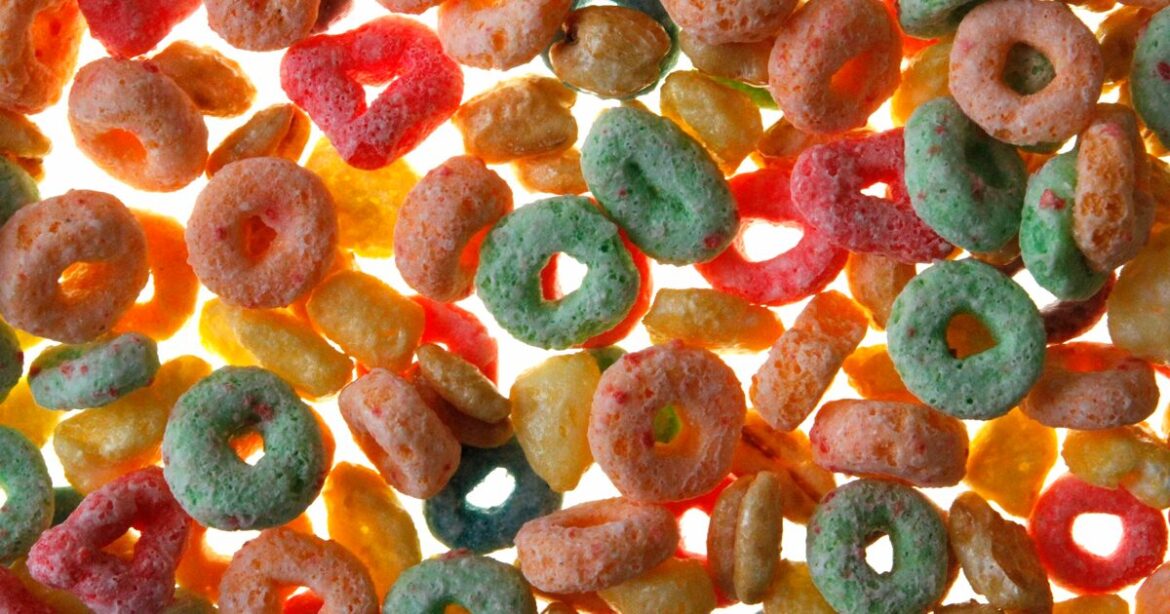Cereal maker Kellogg will remove artificial food dyes from Fruit Loops and other products as part of a deal with Texas.
Attorney General Ken Paxton announced Wednesday that Kellogg signed a voluntary compliance agreement certifying the company will remove artificial food colorings by the end of 2027. In a statement on its website, Kellogg confirmed that it will remove the dyes and said 85% of its products already contain no artificial dyes.
“Kellogg’s cereals have played an important role in US consumers’ lives for more than a century, and we look forward to continuing that tradition,” the company wrote.
The agreement comes four months after Paxton launched an investigation into WK Kellogg, saying the breakfast cereal maker was potentially violating state law by advertising its products as healthy.
Breaking News
Kellogg breakfast cereals — which include Froot Loops, Rice Krispies, Apple Jacks and Frosted Flakes — “are filled with petroleum-based artificial food colorings that have been linked to hyperactivity, obesity, autoimmune diseases and cancer, Paxton said in April.
On Wednesday, he called the agreement a “significant milestone in the movement to remove toxic dyes from foods and protect the health of all Americans.”
Synthetic dyes and ultra-processed foods have come under fire, as U.S. Health Secretary Robert F. Kennedy Jr. launched his “Make America Healthy Again” campaign. Kennedy has blamed dyes for health problems including attention deficit hyperactivity disorder and cancer, though many scientists say more research is needed.
Several companies, including General Mills, J.M. Smucker, Kraft Heinz and PepsiCo, have announced plans to remove synthetic dyes by 2028 or sooner. Texas mainstay Blue Bell Creameries announced it will drop artificial colors from its ice cream products by the end of 2027.
Texas state lawmakers have embraced Kennedy’s campaign. Legislators passed a law this year that will require food manufacturers to either remove certain ingredients — mainly some artificial colors, flavors and chemicals — or label their products as “not recommended for human consumption” by 2027.
U.S. government officials say they plan to eliminate the dyes by the end of 2026, mainly through voluntary efforts from the food industry. Artificial dyes are widely used in the U.S., but they are banned or tightly restricted around the world, including in Canada, Europe and the U.K.
Texas is also investigating Mars, which makes M&M’s and Skittles candies. In July, Paxton accused the candy maker of not fulfilling its 2016 pledge to remove all artificial colors from food products.
“A critical part of fighting for our children’s future is putting an end to companies’ deceptive practices that are aimed at misleading parents and families about the health of food products,” Paxton previously said. “Artificial food colorings have been shown to have disastrous impacts on health, and in no world should foods that include these dyes be advertised as ‘healthy.’”


Dining and Cooking